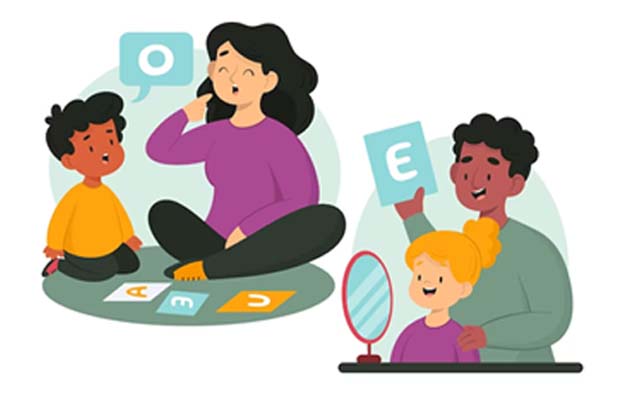Social development in toddlers is a pivotal part of their overall growth. It helps in laying a foundation for healthy relationships in later life. During the toddler years, children begin to explore their environment and develop an understanding of themselves and others. Thus, nurturing social skills at this stage is of utmost importance. Here we delve into ten ways parents and caregivers can foster improved social skills in toddlers.
Encourage Play and Interaction with Peers
Encourage your toddler to play with other children. Arrange playdates or visits to playgrounds where they can interact with peers. This will not only help in improving their social skills but also in developing a sense of empathy and understanding of different perspectives.
Model Appropriate Social Behaviours
Toddlers learn a lot from observing the adults in their lives. Be a role model by displaying appropriate social behaviours such as sharing, taking turns, and expressing gratitude. Show them how to greet others politely and encourage them to mimic these behaviours.
Foster Emotional Intelligence
Help your toddler to identify and express their feelings appropriately. Encourage them to talk about their emotions and to understand the emotions of others. This can be facilitated through activities such as reading books that explore different emotions and discussing them afterwards.
Teach Them to Share and Take Turns
Sharing and taking turns are crucial social skills. Encourage your toddler to share toys and take turns while playing with others. You can foster this by playing games that require turn-taking and praising them when they share nicely.
Encourage Good Manners
Teaching toddlers good manners is vital in developing their social skills. Encourage them to say “please,” “thank you,” and “sorry” when appropriate. These simple etiquettes can go a long way in helping them build healthy relationships as they grow.
Engaging in Imaginative Play
Engage your toddler in imaginative play to help them develop empathy and understanding of different roles in society. You can do this through activities such as role-playing, where they get to take on different roles and understand different perspectives.
Develop Listening Skills
Help your toddler to develop good listening skills by encouraging them to pay attention when others are speaking. You can do this through activities such as story-telling where they learn to listen and respond appropriately to what is being said.
Encourage Cooperative Play
Encourage your toddler to engage in cooperative play with other children. This helps them to learn how to work together with others, develop problem-solving skills and foster a sense of teamwork. You can facilitate this by setting up play activities that require cooperation and teamwork.
Encourage Expression Through Art
Facilitate activities that allow your toddler to express themselves through art. Painting, drawing, and sculpture can provide them with a medium to express their feelings and communicate with others, fostering social development.
Foster Independence and Self-confidence
Fostering independence and self-confidence in toddlers is crucial in developing their social skills. Encourage them to try new things on their own and praise them for their efforts. This helps in building their self-esteem and confidence, which are vital in social interactions.
Fostering social skills in toddlers is a multifaceted process that involves nurturing emotional intelligence, encouraging interaction with peers, and modelling appropriate social behaviours. By investing time and effort in cultivating these skills, parents and caregivers can lay a strong foundation for their toddler’s social development, setting the stage for healthy relationships in later life. Remember that patience and consistency are key in this developmental journey. It’s important to note that all children are different, and what works for one toddler may not work for another. Hence, it is vital to tailor your approach to suit the unique needs and personality of your child.
While there is no one-size-fits-all approach to improving social skills in toddlers, the aforementioned strategies can serve as a robust starting point. Encourage play and interaction, foster emotional intelligence, teach sharing and turn-taking, and develop listening skills, among other strategies, to nurture well-rounded social skills in your toddler. Moreover, encouraging expression through art and fostering independence can go a long way in building a toddler’s self-confidence and ability to relate with others.
Additionally, as we encourage these abilities, it is important to be sensitive to each toddler’s unique personality and rate of development, giving them plenty of chances to develop while also giving them room to be themselves. In order to create a nurturing and supportive atmosphere for their social development, it is important to strike a careful balance between guiding them and allowing them to explore social dynamics at their own pace.
Toddler socialisation and the encouragement of good behaviour from an early age may lay a solid basis for the development of well-adjusted social skills. Therefore, an intentional effort to improve toddlers’ social skills can be considered as an investment in their future, supporting a more seamless transition into preschool and beyond as well-rounded individuals capable of healthy social interactions.
In this way, parents and other primary carers are crucial in helping toddlers develop their social skills and laying the foundation for all of their future interactions with others. The social abilities of toddlers can be greatly enhanced by following these ten techniques, opening the door to a future full of rewarding and peaceful connections. Not just the toddlers on the adventure, but the adults escorting them as well, will learn and develop along the way. Through deliberate effort and caring, toddlers can develop into socially adept people who are prepared to build meaningful relationships with those around them. This fosters a deeper understanding and connection.
Conclusion
EuroSchool helps preschoolers in their social skills by providing them with opportunities to interact with their peers, learn how to resolve conflicts peacefully, and build and maintain positive relationships. The school’s cooperative learning activities, and social-emotional learning curriculum provide children with the opportunities they need to learn and practice the skills they need to succeed in school and in life.











